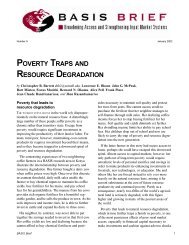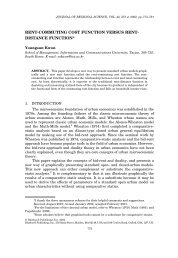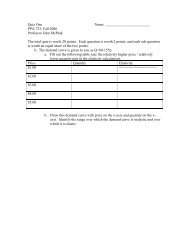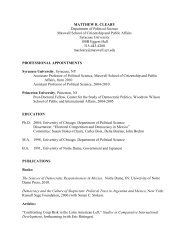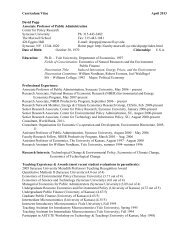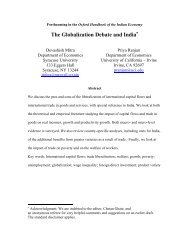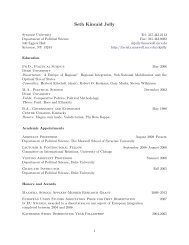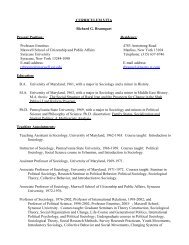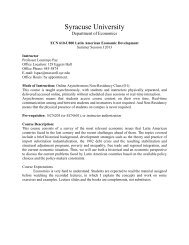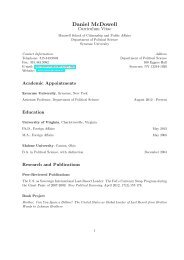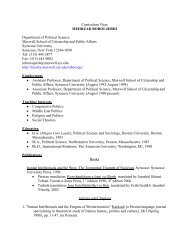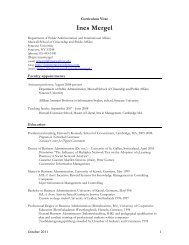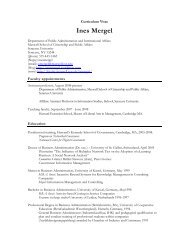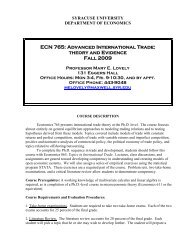The Anbar Awakening - Syracuse University
The Anbar Awakening - Syracuse University
The Anbar Awakening - Syracuse University
You also want an ePaper? Increase the reach of your titles
YUMPU automatically turns print PDFs into web optimized ePapers that Google loves.
Downloaded By: [<strong>Syracuse</strong> <strong>University</strong>] At: 18:08 28 August 2008<br />
<strong>The</strong> <strong>Anbar</strong> <strong>Awakening</strong> | 75<br />
praised in the state media. Saddam increasingly went beyond state tribal-<br />
ism and embraced auxiliary tribalism by allowing sheikhs to create their<br />
own private armies equipped with small arms, rocket-propelled grenades,<br />
mortars and allegedly even howitzers. <strong>The</strong>se armies were intended to allow<br />
a sheikh to police his area, and this period also saw increasing legal defer-<br />
ence to tribal customs. 32<br />
By 1996, tribal formations had become so integral to the state that the cre-<br />
ation of a formal High Council of Tribal Chiefs was proposed. Sheikhs were<br />
not only to have judicial and internal security powers but even the ability to<br />
tax on behalf of the central government. In exchange, they would receive not<br />
only money, weapons and equipment, but also land, government rations,<br />
diplomatic passports and exemption from compulsory military duty. Such<br />
was their importance for internal security that in the 1998 confrontation<br />
with the United States tribal units were deployed in large cities to support<br />
the security services. Previously this would have been the duty of the Ba’ath<br />
Party’s Popular Army. 33 That the government even considered ceding this<br />
level of authority to the sheikhs shows that the Iraqi state, weakened by war<br />
and sanctions, was drifting beyond state and auxiliary tribalism and dan-<br />
gerously close to baronial tribalism.<br />
This delegation of power to tribal authorities not only granted them<br />
formal authority but also enhanced their ability to seek extra-legal sources<br />
of additional revenue from smuggling (particularly lucrative as Iraq was<br />
under United Nations sanctions), government corruption and kickbacks,<br />
and even outright extortion and hijacking. Tribal gangs became increas-<br />
ingly common in this period. 34 Members of the Dulaimi, for example, are<br />
alleged to have raided cars and trucks using the Baghdad–Amman highway<br />
through their territory in the late 1990s. Tribal forces also intimidated or even<br />
assassinated state law-enforcement or security personnel; in other instances<br />
they demanded blood money or other compensation from the state for its<br />
actions. This latter practice became so widespread that the Ba’ath regime<br />
issued an edict making it illegal in 1997. 35<br />
<strong>The</strong> 1990s also saw several serious challenges to Saddam’s power by ele-<br />
ments of various tribes, particularly those he had so actively integrated with<br />
the regime. In 1990, members of the Jubburi plotted a coup against Saddam.



